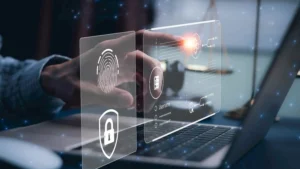The rise of 5G technology is changing the way people, machines, and systems communicate online. 5G, the fifth generation of wireless connectivity, means much more than just faster internet speeds. It’s a technological breakthrough with ultra-low latency, blazing-fast speeds, and the ability to connect billions of devices. This powerful combination is driving groundbreaking developments in healthcare, industry, entertainment, and smart cities. 5G technology transforms the boundaries between the physical and digital realms.
A Revolution in Speed and Connectivity
Speed is a key advantage of 5G. It’s up to 100 times faster than 4G and can instantly download or transfer massive files, videos, and applications. While higher speeds have improved mobile internet, its true potential lies in supporting new technologies that require rapid data transfer. 5G enables devices, vehicles, and systems to communicate instantly. Self-driving vehicles, remote surgery, and real-time industrial control can all benefit from this level of connectivity. Innovation is accelerating at an unimaginable pace thanks to faster and more reliable connections.
5G Transforms Healthcare
5G technology will revolutionize healthcare. 5G’s rapid data transmission and low latency will help physicians make informed decisions and improve patient outcomes. Remote surgery offers significant opportunities, enabling physicians to perform procedures remotely using robotic equipment controlled in real time from thousands of miles away. High-definition video consultations and wearable health monitoring devices will enhance telemedicine. 5G accelerates the sharing of vast amounts of medical images and AI-driven diagnostics, making healthcare more accessible and accurate. This digital transformation will transform global healthcare.
5G Applications in Transportation and Smart Mobility
The convergence of 5G technologies is rapidly transforming transportation systems. Safe and efficient autonomous vehicles, connected cars, and intelligent transportation systems require rapid communication. With 5G, vehicles can instantly exchange data with each other and with infrastructure to predict and adapt to road conditions. These developments can prevent accidents, improve traffic flow, and optimize energy consumption. Sensors and tracking systems can use 5G to improve the efficiency of public transportation. 5G networks coordinate vehicles, roads, and urban infrastructure to create a safer and smarter transportation ecosystem.
Taking Entertainment and Media to the Next Level
The power of 5G is transforming the entertainment industry. Ultra-high-definition streaming content, immersive gaming, and augmented reality are becoming increasingly popular thanks to faster bandwidth and lower latency. VR and AR applications are booming thanks to 5G’s ability to analyze data in real time, eliminate latency, and enhance realism. Live concerts, music festivals, and live sporting events can now offer interactive, 360-degree experiences worldwide. Content creators can upload and distribute videos faster than ever, reaching consumers more quickly. Thanks to 5G connectivity, entertainment will be more personal, immersive, and accessible in the future.
Enhancing Remote Learning and Education
Digital platforms have already revolutionized education, and 5G accelerates this evolution. Students can participate in virtual classrooms, attend interactive lectures, and participate in real-time anytime, anywhere, with faster and more stable connections. Virtual labs, 3D simulations, and AI-driven instructors can help teachers increase student engagement. 5G can bring high-speed internet to remote areas with limited infrastructure, bridging the digital divide. The future of education will be more connected, immersive, and accessible to all, making knowledge global.
5G and the Future of Smart Cities
5G networks enable smart cities. Real-time connectivity between sensors, cars, public systems, and residents makes cities more efficient and sustainable. Emergency services respond more quickly, traffic management systems reduce congestion, and activity-based street lighting adjusts itself. 5G improves waste management, energy optimization, and environmental monitoring. These innovations enhance urban life and reduce pollution and resource consumption. As populations grow, 5G-powered smart cities are essential for a sustainable and livable environment.
Security and Privacy in the 5G Era
5G brings new challenges for cybersecurity and data privacy, but also enormous opportunities. More connected devices bring security risks. We must prevent cyberattacks on 5G networks to uphold public trust and safeguard sensitive data. Governments, businesses, and technology vendors must collaborate on security and encryption. We want to stimulate innovation without compromising privacy. We must strike a balance between technological advancements and appropriate security measures as our reliance on connected technologies grows.
Conclusion
5G is the cornerstone of the new digital age and is more than just a speed boost. By offering faster communication, lower latency, and high levels of connectivity, 5G will revolutionize businesses, empower individuals, and reshape society. These technological advances will benefit every aspect of human life, from healthcare and education to entertainment and smart cities. The limitless possibilities of 5G will fuel the next wave of innovation and connect the world like never before. As we realize the full potential of 5G, it will make life easier, smarter, more efficient, and more sustainable for future generations.
FAQs
1. How is 5G different from 4G?
5G is ideal for self-driving cars and smart cities because it offers faster bandwidth, lower latency, and more device connectivity than 4G.
2. What are the benefits of 5G for consumers?
For the average consumer, 5G means faster downloads, smoother streaming, better-quality video calls, and more stable connections in crowded areas.
3. Is 5G safe?
International bodies are monitoring the safety of 5G technology, and there is currently no scientific evidence to suggest it poses any health risks.
4. What impact will 5G have on businesses?
5G enables automation, remote monitoring, and AI-driven processes, improving efficiency and innovation.
5. When will 5G be widespread?
5G networks are being rolled out worldwide and are expected to become the standard for mobile and wireless communications within a few years.




